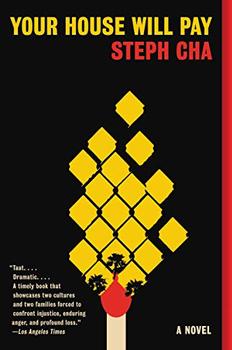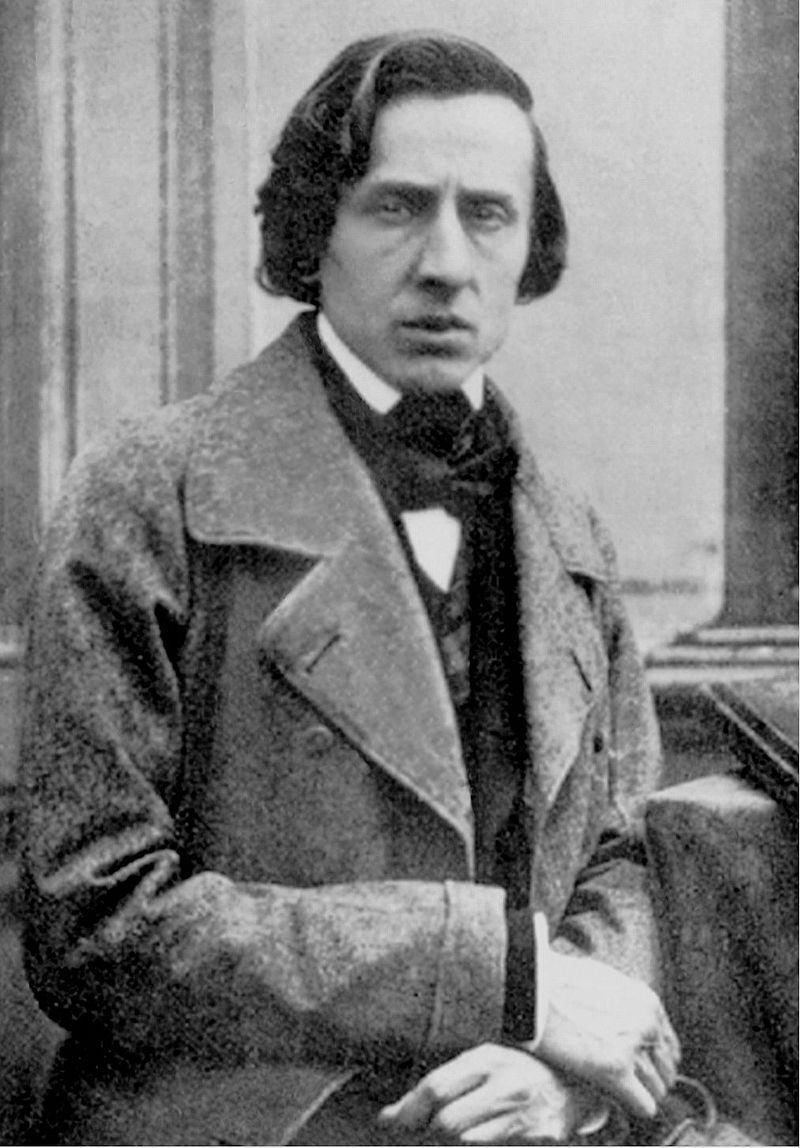Summary | Excerpt | Reviews | Beyond the Book | Read-Alikes | Genres & Themes | Author Bio

This article relates to Your House Will Pay
 In Your House Will Pay, one of author Steph Cha's characters is a gregarious, astute journalist called Jules Searcey, who is known for writing about issues related to political and racial dissent. He penned a breakthrough book based on his reporting called Farewell Waltz: The Life and Death of Ava Matthews, which covered the murder of a young, bright Black girl killed during the 1992 riots in Los Angeles. Since Ava was a talented musician, Searcey titled the book after a piano piece—Frédéric Chopin's Waltz in A-flat major, op. 69, no. 1, more commonly known as the Farewell Waltz.
In Your House Will Pay, one of author Steph Cha's characters is a gregarious, astute journalist called Jules Searcey, who is known for writing about issues related to political and racial dissent. He penned a breakthrough book based on his reporting called Farewell Waltz: The Life and Death of Ava Matthews, which covered the murder of a young, bright Black girl killed during the 1992 riots in Los Angeles. Since Ava was a talented musician, Searcey titled the book after a piano piece—Frédéric Chopin's Waltz in A-flat major, op. 69, no. 1, more commonly known as the Farewell Waltz.
Frédéric Chopin (1810-1849) is widely considered the greatest Polish composer and a maestro pianist. His talents flourished early on; he could play piano and compose by age six. Exposed to high-class society and professional musicians through his father's work as a tutor in Warsaw, Chopin quickly cemented his position as a child prodigy, studying under the likes of composer Josef Elsner at a conservatory. Chopin was then sent to Vienna—the hotbed of the arts—where he made his official debut in 1829 with two performances. Audiences praised his expressiveness and unblemished technique. Chopin went on to perform in Germany, Austria, Poland and France, but was always plagued by bad health. His health declined precipitously from 1842 onwards, and he produced fewer new works and performed less often, which damaged his reputation and his finances. He died five years later, aged 39, having succumbed to the effects of tuberculosis, along with what is now suspected to have been epilepsy.
Despite his few decades of contribution to music, Chopin has left a lasting mark on the world. He was a visionary of Romantic music, a style forged in the 1800s that defied the rigidity and restraint of the Classical period. Chopin's poetic, feeling approach moved audiences, whether he was composing for massive orchestras or solo pianists.
The Farewell Waltz, Chopin's A-flat waltz for piano, embodies these elements of the Romantic era, at once fluid, luminous and evocative. Although most waltzes, including Chopin's others, are known for their dancing rhythm, vibrant with joy and elegance, Farewell Waltz approaches the form from a tender, delicate point-of-view. Hints of melancholy are tucked into the rolling, repeated melody.
Chopin's resigned, aching waltz was inspired by romantic rejection. At 25, he proposed to 16-year-old Maria Wodzinska, the daughter of friends from Warsaw. Chopin—who was on the road at the time of the proposal—yearned for home in Poland, which was embodied by Maria. Although Maria was ecstatic, her parents knew of Chopin's waning health and disapproved of his questionable social habits, including his extensive trips abroad, fragile ego, and gender-nonconforming associates (such as Parisian writer and socialist George Sand). After waiting a year to see if Chopin's circumstances would improve, Maria's mother wrote him a letter informing him that the proposal was rejected. Then—as many prodigious artists have done—Chopin turned to his craft, his medium of choice the piano, and composed the Farewell Waltz, dedicated to his lost love.
At the time of Ava Matthews' death in Your House Will Pay, she was the age of Chopin's beloved Maria Wodzinska—just 16. Unlike Maria, the fictional Ava Matthews was living in dire circumstances. She grew up in poverty, with both parents deceased, surrounded by gang activity. Yet her natural talent and emotional presence at the piano promised her the possibility of a better future. To the media-savvy Jules Searcey, Ava would forever be the girl who performed Chopin's Farewell Waltz in competitions, winning top prize against children whose families could actually afford pianos and music teachers. But Ava, caught in the race riots, would not live to see her potential fulfilled.
Click the video below to hear the Farewell Waltz, performed by Japanese pianist Michie Koyama.
Frederic Chopin
Filed under Music and the Arts
![]() This "beyond the book article" relates to Your House Will Pay. It originally ran in October 2019 and has been updated for the
July 2020 paperback edition.
Go to magazine.
This "beyond the book article" relates to Your House Will Pay. It originally ran in October 2019 and has been updated for the
July 2020 paperback edition.
Go to magazine.
Your guide toexceptional books
BookBrowse seeks out and recommends the best in contemporary fiction and nonfiction—books that not only engage and entertain but also deepen our understanding of ourselves and the world around us.